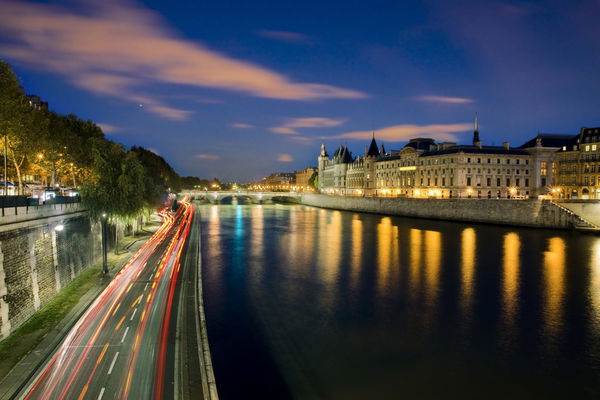

Just 28 days away from the Summer Olympics in 2024, worries regarding the condition of the water in the Seine River have become unbearable as well as a cause of concern. Active action calls and measures are being taken to bring it back to its pristine glory, but to what avail and how much of an uphill task is it though? Might be a pipe dream after all, considering we are less than a month away, but one can only hope. Unsafe amounts of E. coli bacteria have been found in the river despite a $1.5 billion cleanup work, according to recent testing. Athletes and the general public are outraged by this worrying scenario, and many are asking if Paris is prepared to conduct swimming events in these poisoned waters.
The most recent testing, which took place, revealed E. Coli levels that were 10x higher than permitted. The Eau de Paris monitoring group reports that these discoveries have occurred for the third week in a row. Furthermore, even with improvements, enterococci bacteria levels are still dangerous. The timer is quickly running out for officials to fix these serious health dangers before the Olympics start. Wake up and smell the coffee? More like wake up and smell the poop before its too late should be the name of the game.
There are major health dangers associated with the Seine’s ongoing contamination. When E. coli is associated with feces, it can lead to serious infections, pneumonia, sepsis, diarrhea, and urinary tract infections. Recent severe thunderstorms have made matters worse by washing sewage and wastewater into the river. The water’s declining quality was put down by the mayor’s office of Paris to adverse hydrological conditions, absence of sunlight, below-average temperatures, and pollution from upstream sources.
ADVERTISEMENT
Article continues below this ad
Even with these lingering problems, Olympic planners are hopeful. The head of the Paris 2024 organizing committee, Tony Estanguet, gave a guarantee that things would get better by the second half of July. The Paris region prefect in charge of the Seine, Marc Guillaume, continued, “At some point, we’ll have summer weather.” Nevertheless, the promises they made haven’t done much to ease the growing worries of athletes and the public.
Fans’ reactions about the putrid Seine River ahead of the Paris Olympics
The idea of holding swimming competitions in the Seine River has caused an uproar among enthusiasts of the 2024 Paris Olympics. With no holds barred, one critic referred to it as “the dumbest and expensive idea I have ever heard.” This direct evaluation conveys the skepticism that some people have regarding the viability of utilizing the Seine for Olympic swimming. Many expressed concerns about their health and safety, with one individual saying, “I’m not swimming in that nasty water.”
ADVERTISEMENT
Article continues below this ad

The community itself has also expressed dissatisfaction. In a social media campaign called #JeChieDansLaSeineLe23Juin, people were threatening to shit in the river on June 23 in protest. Even though the event never happened, it brought attention to the rising concern about how the poisoning of the Seine has been handled. The campaign is a reflection of a larger belief among the public that officials are putting the Olympic schedule ahead of public health and safety.
ADVERTISEMENT
Article continues below this ad
Triathlon and marathon swimming competitions are planned in the Seine close to the Alexandre III bridge. The notion of competing in unsafe waters is intimidating for athletes, as contamination levels are frequently higher than permissible standards. However, June 18 and 19 marked the first use of a 50,000-cubic-meter reservoir that was established in May to store extra rainwater. This action kept although 40,000 cubic meters of wastewater out of the Seine, the underlying problems remain. The ongoing pollution highlights the difficulties in maintaining water quality in a significant city river, where pollution is caused by runoff, unlawful dumping, and boat traffic.
“Why does it take the Olympics to keep your main source of water and the main feature of your country/city clean?” another person said, pointing out the absurdity of the situation. This draws attention to the larger problem of environmental neglect and the sudden necessity of addressing it only when it is in the public eye. One person added to the criticism by predicting environmental and logistical challenges: “Paris Olympics will be disastrous. No AC and contaminated water and hot summer.” Concerns were also raised by the river’s absence of aquatic life: “The fact that there are no fish in that river tells you everything you need to know.” Thus, alongside raising issues regarding safety and appropriateness, it also shows that the ecosystem of the river is not in good health.
ADVERTISEMENT
ADVERTISEMENT
ADVERTISEMENT
ADVERTISEMENT

